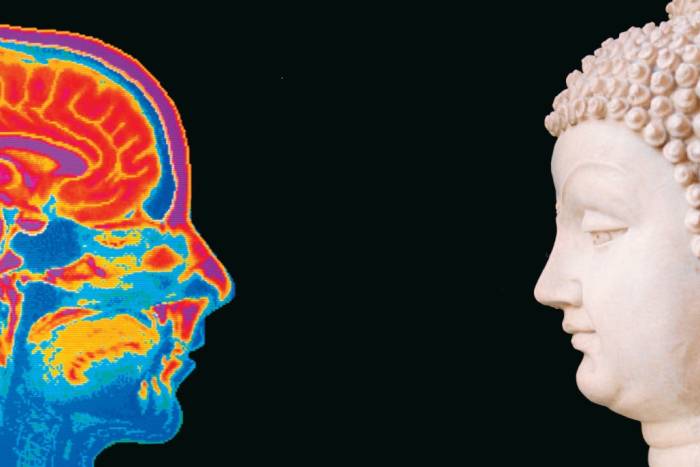Neil Young and Music vs Monsanto
On his new album, “The Monsanto Years,” Neil Young takes on the huge corporates that support the Monsanto philosophy.
Neil Young is a successful rebel. He takes advantage of his position as one of the most talented musicians and composers of our time to include in his songs, many of which are hits, an echo of the great problems that are detrimental to the quality of human life and the environment.
His consistent environmental activism, as well as his spontaneous humanism, has made many people reflect through his virtuoso compositions. One of his most successful altruistic projects is Farm Aid, a festival that he has organized since 1985 together with Willie Nelson to support US farmers in danger of losing their farms due to mortgages or natural disasters by contributing funds. He has also called for the use of biodiesel in vehicles and even built his own electric car.
Independently of the fact that he is Canadian by birth, Neil Young’s battles know no borders. He has taken his struggle for specific causes to other countries, such as Farm Aid, or his condemnation of the Spanish conquistador who devastated Mexico (with his track “Cortez The Killer”), as well as championing global causes, such as the environment.
On this occasion, the restless Young is back with a new conscience and talent. His most recent album, The Monsanto Years, his 36th album and an instrumental ode designed, in harmony with folk, to challenge Monsanto and corporate chains such as Starbucks and Walmart that spread an idiotic idea of reality.
Produced in collaboration with Promise Of The Real (the band formed by the offspring of Willie Nelson), the album contains gospel tracks such as “A Rock Star Bucks A Coffee Shop,” on which Young reiterates his criticism of the coffee chain and which supported a lawsuit in Vermont by Monsanto to prevent the law from labeling genetically modified food.
Yeah, I want a cup of coffee but I don’t want a GMO. I like to start my day off without helping Monsanto.
Another track, “People Want to Hear About Love,” which is not necessarily about love but rather the twisting of that idea as a placebo; of the erosion of our human qualities and also of the soil that feeds us (“all the beautiful fish in the deep blue sea dying… Corporations are hijacking all your rights”) and the melodic “Woolf Moon,” that transports us to “shining fields of wheat” accompanied by a harmonica.
The album perhaps will aim to spread like the transgenic crops that go viral and invade neighboring lands. The Monsanto Years reminds us of the admirable role that many of the greatest musicians have played: of pointing out and combating some of the main evils facing humanity throughout its history. Far from the dressing rooms, flashbulbs and sex with groupies, Young accepts his responsibility as a public figure and amplifier of alternatives in the face of the dark side of the establishment.
Related Articles
Why shrinking the size of life is synonymous of well-being
One of the great misunderstandings regarding modern spirituality is that to achieve it requires many things: readings, food, exercise, travel, groups and techniques. But perhaps it should be suggested
What is energy medicine yoga?
Energy Medicine Yoga (EMYoga) is slightly different from other types of Yoga, but it provides the same benefits in addition to a few very specific ones. One of them is that it gives you much more in
Red tea, the best antioxidant beverage on earth
Red tea is considered to be the most unusual of teas because it implies a consistently different preparation process. ––It is believed that its finding came upon surprisingly when traditional green
Is the internet on the verge of self-awareness?
More than 50 years ago, Marshall McLuhan described technology as an extension of our brains, constantly mutating and branching out. “These new media have made our world into a single unit,” the
How art can help us to age, healthy
Perhaps many of us already well know the formula for aging in health and wellness. A balanced diet and, as much as possible, one that’s natural. Keep our brains active and stimulated. Preserve and
Earthanima: documenting the living language of nature
The basic intuition that the Earth is alive and that nature has a language through which it communicates with us is what prompted this wood-art project named Earthanima. For the past couple of years
Dialogue with the Dalai Lama on science and spirituality
The Dalai Lama has been interested in science since he was a child. Over the years he’s visited many laboratories and has attended conferences that discuss consciousness from the scientific point of
Brian Eno's literary recommendations to rebuild society
Artists and authors often get asked what books or records they’d take with them to a deserted island. On principle, this is naturally an extreme anthology: urgency and tragedy guide its selection. It
Bill Mollison, natural ideologue and father of permaculture
Permaculture has established itself as a path towards communitarianism, but one that is in full symbiosis with nature. In practice, it is more than just a combination of agriculture, horticulture
A New Year's resolution for the earth
Worrisome quantities of waste are generated by human populations. Especially in cities, these have reached unprecedented and alarming levels. A largely uncontrolled practice, it affects everything on










